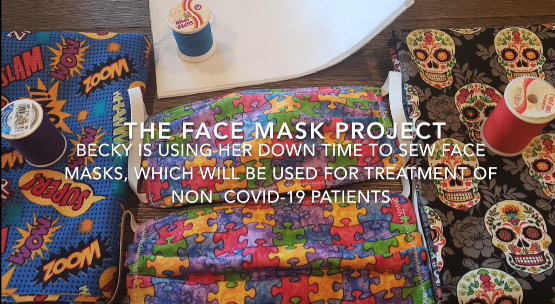It may seem that the world is united in dealing with common challenges presented by the COVID-19 crisis, but dig just a little below the surface, and you realize that a variation of the Anna Karenina principle is more apt: everyone challenged by and coping with the crisis is challenged and coping in their own way.
What challenges do you face now?
Those we interact with on a daily basis in these abnormal times are likely battling things either arising from or amplified by the pandemic. Many of the challenges people face are less recognized or known.
Within my network, I know individuals who have had to forego elective surgeries due to the extreme demands placed on the health care system, not to mention that anyone who doesn’t need to be undergoing medical treatment doesn’t want to be near a medical facility. While the delay makes sense, though, the reasons for the surgery haven’t gone away. For one individual I know, this means living with severe knee pain for an unknown extended period of time.
There are individuals waiting for loved ones to come home from parts of the world where there is no easy way back. Individuals who have suffered the loss of friends and loved ones (whether COVID-19 related or not) who aren’t able to mourn properly. Individuals caring for family members with chronic physical or mental health conditions for whom the virus poses particular challenges.
Kindness heals.
And that thought brings me to another saying: Be kind, for everyone you meet is fighting a hard battle. Never has that meant more than in these times.
Studies show that being kind – being generous, lending a hand, understanding – to others increases the brain’s oxytocin, dopamine, and serotonin—all chemicals with proven health benefits, and definitely chemicals we could all use more of. Acts of kindness increase the activity in the brain that’s responsible for empathy, leading to better relationships with others. It’s been shown that volunteers experience better cardiovascular health, fewer aches and pains, and improved immune systems. And being kind to yourself – eating well, being active, helping others with the same problems we have – helps you cope with negative feelings and gets you through times like these.
There’s no such thing as a small act of kindness.
So how can you “be kind” when you’re shut in at home, in a lockdown, or in quarantine? The key is to stay connected however you can. From video chats and other online connections to balcony singalongs and cross-driveway parties, staying connected helps you stay positive. Do things like donating dinners to care workers or making face masks at home. When you run your own errands, offer to include someone else’s errands as well. And keep an eye out for your neighbors, if only to wave hello from time to time.
In “normal” times, so many challenges can create stress. In these times, the challenges are new and unfamiliar. The advice to be kind is the best advice we each can take to heart.
At Buck, like many organizations, we’re taking time to highlight the ways in which we are. Just one of those acts is The Face Mask Project, which my colleague, Becky Soderfeldt, is contributing her time to. Thank you, Becky, and thank you to everyone who is part of the Buck family—colleagues, clients and partners—for your daily acts of kindness.

